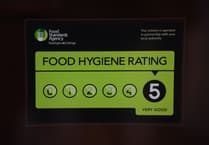county, district and borough councils in Surrey have launched a fly-tipping crackdown to protect the countryside and save hundreds of thousands of pounds in clean-up costs.
The number of fly-tipping incidents has risen nationwide in the last few years with 6,851 reported in Surrey alone in 2014/15 – up from 6,760 the year before.
In the new drive to tackle the problem, supported by the Environment Agency and Surrey Police, a co-ordinator will be appointed to lead the fly-tipping blitz and help councils share intelligence on fly-tippers and step up enforcement.
Councils will also consider whether new technology such as GPS mapping and portable cameras can be harnessed to help bring offenders to justice. Fly-tipping can range from a black bag of household waste to large quantities of commercial or construction waste and is one of the most common forms of anti-social behaviour.
As well as being unsightly and a threat to the environment, it is expensive to clear up, costing Surrey’s councils nearly £1million in collection, investigation and disposal in 2014 to 2015. Residents are being urged to report fly-tipping wherever they see it.
Mike Goodman, Surrey County Council’s cabinet member for environment and planning, said: “Fly-tipping is a blight on the countryside and a drain on our resources and we’re determined to work together to clamp down on the problem.
“Some people have no respect for the environment and refuse to use the waste facilities available to all of us.
“We don’t want law-abiding Surrey residents to have to bear the cost of clearing up illegally dumped rubbish which is why we’re stepping up our efforts to combat fly-tipping.”
Anyone caught fly-tipping risks an on-the-spot fine and, if convicted in a crown court, could face an unlimited fine or imprisonment.
Householders have a “duty of care” to make sure that any waste generated on their property is disposed of correctly. They could be prosecuted and fined if their waste ends up fly-tipped and they can’t show that they took reasonable steps to prevent it.
James Liney, waste regulation team leader for the Environment Agency, said: “We support the work of local authorities in tackling fly-tipping. The Environment Agency investigates large-scale fly-tipping, waste crime by organised gangs, and fly-tipped hazardous waste. We encourage the public to report fly-tipping whenever they see it.”
• For more information on waste disposal, fly-tipping and how to report it, visit recycleforsurrey.org.uk/flytipping.
• West Sussex County Council is also proposing to make changes to its waste and recycling centres in a bid to save around £2million a year.
Proposals also include changes to opening hours, the number of days some sites open each week, charges for non-household waste disposal including soil, hardcore, DIY, plasterboard, car and van tyres and commercial type tyres such as LGV, tractor and mobile plant tyres).
Also under review is the mobile household waste recycling service and how support can be improved to voluntary, community and charitable organisations.
West Sussex says it will invest in an enforcement team to combat fly tipping.
The county says the views of more than 4,800 residents were taken into consideration and was the biggest response to a consultation the council has ever run.


